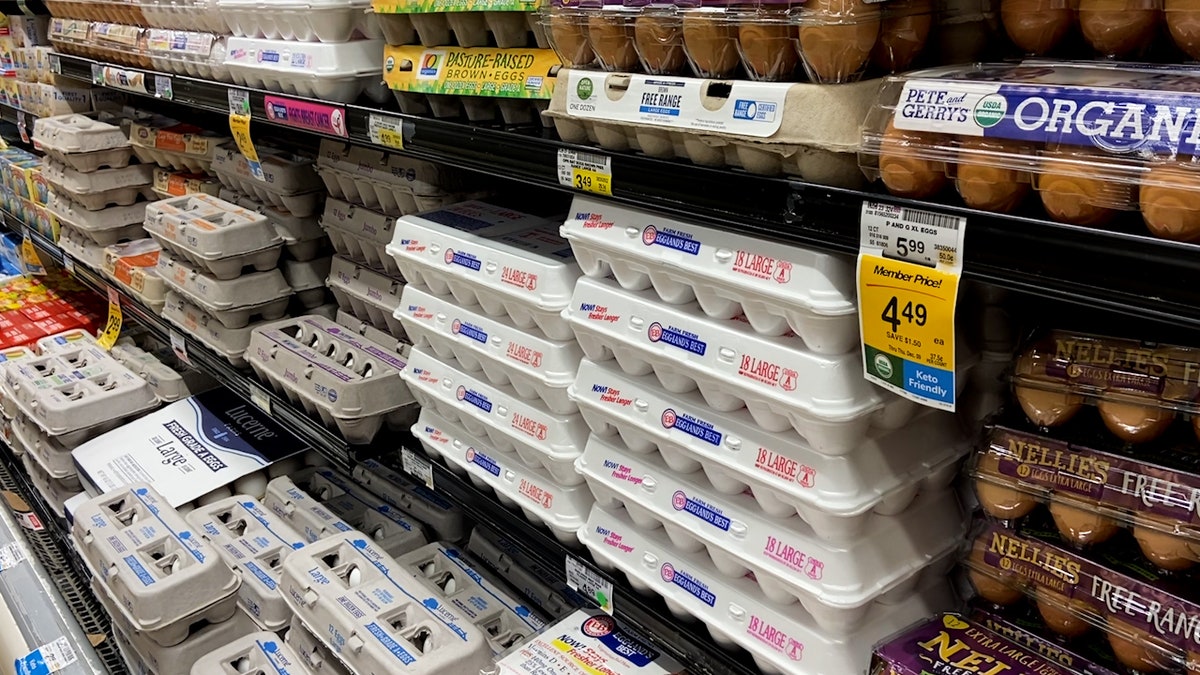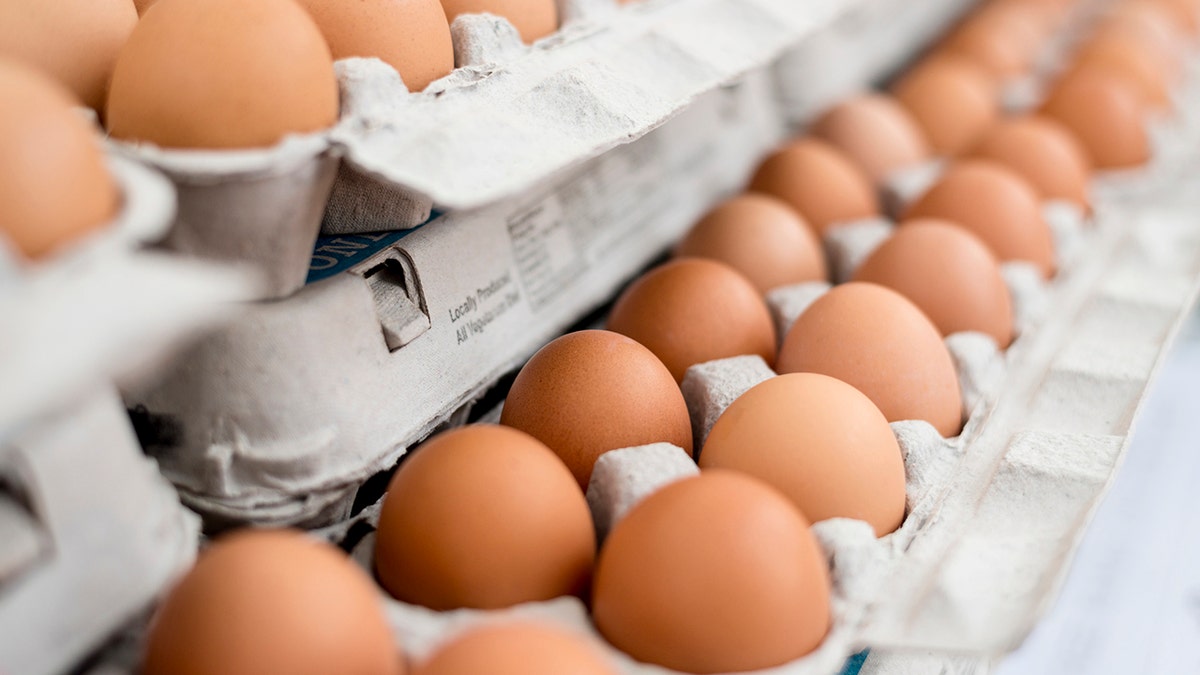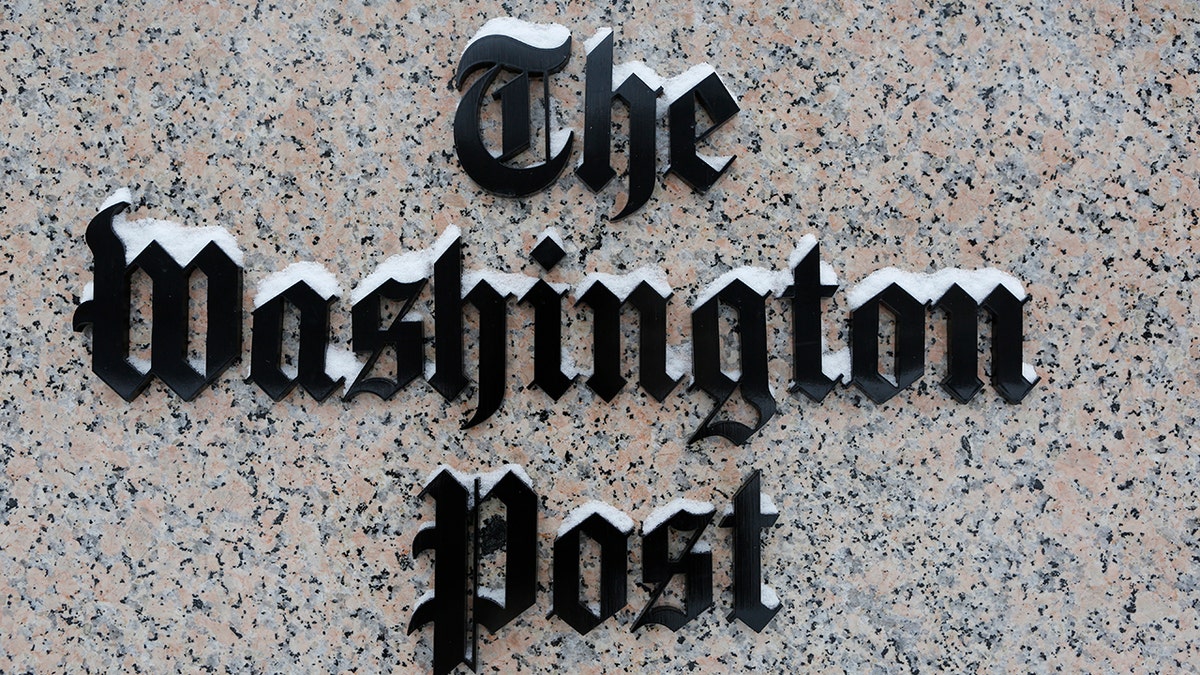Connor Blackmon: After changing the food, I got eggs
"Urban Chicken Farmer' Connor Blackman on his chicken's lack of egg production and why he changed the feed on 'Tucker Carlson Tonight.'
Washington Post columnist Megan McArdle attempted to reframe Americans’ concern over rising egg prices by arguing that, when compared to prices from over a century ago, the prices today are relatively fair.
Her Tuesday column "Why eggs are cheaper than you think" acknowledged the "soaring price of eggs" in recent months but provided additional context using data from as far back as 1896 to explain how "eggs are still really cheap, historically speaking."
"If you look at old cookbooks, you will notice that the authors seem to view eggs and chicken as almost a luxury good. My 1950 ‘Betty Crocker’s Picture Cook book’ contains recipes for making mock chicken dishes — out of veal. Go back further and the 1896 Fannie Farmer cookbook sternly informs readers that, ‘eggs, even at twenty-five cents per dozen, should not be freely used by the strict economist.’ An odd assertion to the modern ear, until you realize that in 1896 a pound of round steak was about 35 percent cheaper than a pound of eggs," McArdle wrote.

The Country Hen has had to increase its egg prices for the first time in seven years (Fox News Digital)
This argument followed a previous Twitter trend in January that had social media users declaring eggs a "luxury item" with people displaying photos of prices as high as $11.49.
‘EGG HUSTLER,’ PENNSYLVANIA COUPLE RENTING OUT COOPS, WORK TO COMBAT NATIONWIDE EGG CRISIS
Although the price of eggs rose by over 100% year over year in December, McArdle explained that overall, based on relative income, egg prices have drastically decreased within the last century.
"Almost all food items have gotten much cheaper, relative to our incomes, than they were a century ago. But some food prices fell faster than others, and chicken and eggs were among those that saw the greatest improvements, thanks to a combination of agricultural innovations," McArdle argued.

Crates of eggs at farmers market. (iStock)
She explained that while the "average male factory worker" in 1905 could afford to take home approximately 41 cartons of eggs, the average working man today could purchase over 275 cartons of eggs.
She closed, "If you can’t help cringing when you see the cashier ring up eggs that cost twice as much as they did a year ago, it might help to remember that however poor you feel, your ancestors would have taken one look at your grocery cart and declared you rich beyond their dreams."
As rising egg prices became more noticeable, liberals and other left-leaning figures attempted to shift blame to capitalism and corporate greed. Former Secretary of Labor Robert Reich accused Cal-Maine of affecting prices to take in record profits.
LIBERALS BLAME CAPITALISM FOR SOARING EGG PRICES: ‘HAPPENING IN A HYPER-CAPITALIST COUNTRY’

The Washington Post logo outside its headquarters. (Oliver Contreras/For The Washington Post via Getty Images)
The article also received backlash on Twitter for appearing to mock kitchen table issues.
Entrepreneur Kevin Dalton joked, "'I for one feel better about not being able to afford food for my family because my ancestors were much poorer than I am.' - Nobody."
"The media continues to mock you," radio host Carol Roth commented.
Heritage Foundation economist Peter St. Onge wrote, "WaPo: quit complaining about eggs, it was worse in 1905. When the only thing you got is favorable comparisons to 130 years, I guess that's what you go with."
Washington Examiner Ian Haworth also joked, "'Can’t afford food? Well your ancestors were hungry too, so shut the f*** up!'"
Talk show host Joe Pagliarulo wrote, "these people are freaking nuts."
"The Sky is Green," radio host Jesse Kelly remarked.
"You're not seeing what you see. You're not hearing what you hear. You're not feeling what you feel. It's fine, everything is fine," Daily Wire associate editor Virginia Kruta tweeted.
CLICK HERE TO GET THE FOX NEWS APP
McArdle later remarked on the backlash from her own Twitter account.
"I honestly can't believe there are people getting mad about this column," she commented, while linking to the article.
